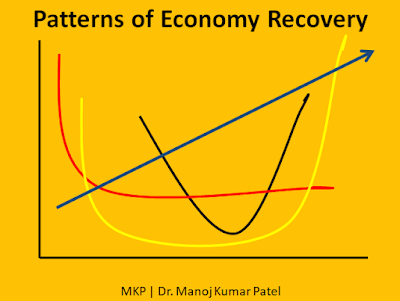
I am a chemist because I studied
chemistry to post-graduate in it. Aspects and uses of natural resources for
short term benefits and happiness of humans attracted me to work in the fields
of environmental chemistry. I wanted to learn and find out how hitherto
life-supporting matters like air, water, soil, and forestry are getting
polluted. These life-supporting matters and systems are getting impacted
irreversibly. I became a lover of nature and tried to do my bit to do well to
the earth. I planted trees in the close vicinity of my house. Now after six
years it has become a favorite place for cows, and other animals like dogs to
take a rest in the shades of trees. It is a different matter that many of the
intelligent humans try to park their cars in front of my gate making it
difficult to take out my car from the garage. It is also interesting to note
that others do not feel it necessary to plant at least two more trees in front
of their houses. Despite these, I continue to be a planter of trees. I have my
loyalty towards nature and the mother earth. I worked in explosives
manufacturing and mining. My profession made me be a link in the chain of
exploitation of natural resources for the comforts of human beings. My loyalty
was thus towards chemistry, the natural environment, chemical manufacturing,
and mining.
Amidst these multiple loyalties,
conflicts have become sometimes inevitable. My association in chemical
manufacturing and mining to earn a living for me and my family is not in
accordance with my inherent inclination to do well for the natural environment.
Life with conflicting loyalties has made life living difficult. True, but then
who said life was simple? Deal with it.
Conflicting loyalties are faced
by each one of us in our lives. Nuclear research has given mankind the ultimate
ability to use atoms and molecules to harness power through fissions and
fusions. At the same time, it was the same ability that made the little boys to
annihilate the lives and wealth of the cities of Hiroshima on the fate less day
of August 6, 1945. The loyalty of the scientists and that of its users towards
the same object (nuclear power) was different. The explosion of about 4000 tons
of ammonium nitrate on August 4, 2020, in the port city, ravaged lives and
properties in Beirut. The loyalties of the transporter, store housekeeper, and
the administrator were different. Conflicting loyalties made a disaster to take
place.
Life is full of conflict. Should
we be loyal to our religions, states, nations? It is difficult to answer. At
least it is difficult to find the right answer. Each one will have a different
perception of loyalty, and conflict of loyalty. There are, realistically
speaking, four types of conflict in the world. There is a conflict between us
and another person, there is conflict within one’s self, there is a conflict
between us and the world of nature outside, and finally, there is a conflict
between us and God Himself. While the conflict between us and another person,
and the conflict within one’s self are visible and seen in our daily life, the
other two conflicts are not so easily seen. We may call them social conflict,
personal conflict, natural conflict, and spiritual conflict. The social and
personal conflicts are the effects of natural and spiritual conflicts. The
conflicts follow one after another in a sequence of logical deduction.
Ignorance, selfishness, and
myopia are the prime reasons to push the implementation of “वसुधैव कुटुम्बकम् or वसुधा एव कुटुम्बकम्” or “the
world is one family” towards the precipice of destruction. If upstream the
management of the manufacturing industry releases toxic effluents into the
water streams with impunity then downstream the populace using water from the
same stream will get ill, sick, and poisoned. If one of the countries explodes
nuclear bombs and if citizens of the same country view this s(m)ad action of
their government with pride then the innocuous and innocent biosystem in the
far and near vicinities will face the consequences of it.
Developmental and technological
strategies and implementations within countries and even cities should give far
more weight to global problems and interests. These should be through political
dynamics. When the next elections come along, we should ask the politicians
four questions: if you are elected, what actions will you take to lessen the
risks of nuclear war? What actions will you take to lessen the risks of climate
change? What actions will you take to regulate disruptive technologies such as
AI and bioengineering? And finally, how do you see the world of 2040?
Are conflicts capable to isolate
or unite with one another? Conflicts are uniter, not a divider. Conflicts make
us more inter-dependent. Identity is defined by conflicts and dilemmas more
than by agreements. What does it mean to be Indian in 2020? It does not mean to
have bind faiths on beliefs. As responsible Indians, we need to fabric our
threads of beliefs with those of others. We should harmonize and make mass
movements to make this world war free, pollution-free, and disease-free. We
should fight to see that new strains of viruses do not sweep the world again as
we are going to pass through a turbulent and painful 2020. These are big
challenges and these are global. What will happen when a virus, such as, like
covid19 and the new strain of covid19 (we may term it as covid20) re-sweep
mankind. What will happen if some country forgets the WW I and WW II and get
involved in another war of that potent.
Let the conflicts unite us for
the betterment.




Well explained
ReplyDelete